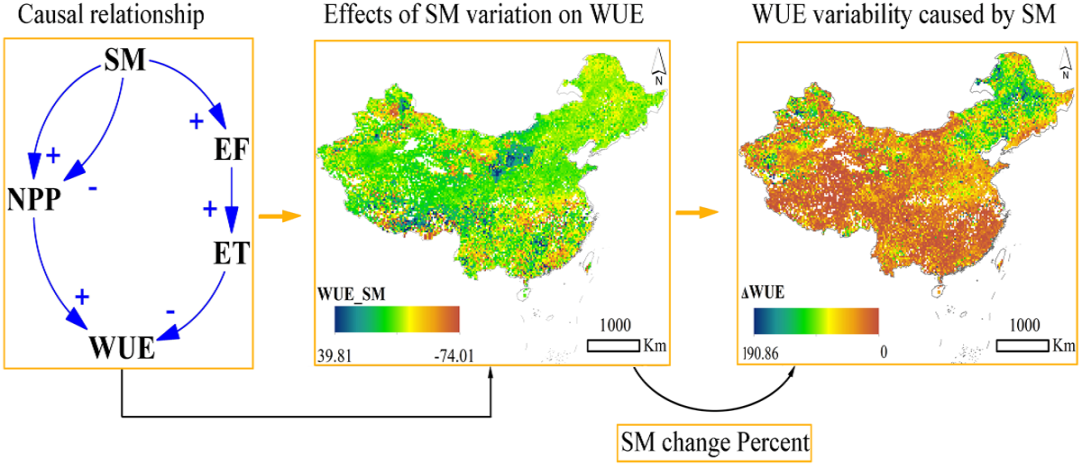Study: A New Framework for Quantitative Analysis of the Impacts of Soil Moisture on Ecosystem Water Use Efficiency
2021-11-12
Researchers from Xinjiang Institute of Ecology and Geography, Chinese Academy of Sciences, have provided an analytical framework for quantitatively evaluating the impact of soil moisture on ecosystem water use efficiency based on the quantitative relationship between evaporation process and soil moisture and other remote sensing data.

The findings were published in Remote Sensing, entitled "Quantifying Soil Moisture Impacts on Water Use Efficiency in Terrestrial Ecosystems of China".
Soil moisture (SM) significantly affects the exchange of land surface energy and the stability of terrestrial ecosystems. Although some conclusions have been drawn about the effects of SM on ecosystem water use efficiency (WUE), the influence mechanism and the quantitative assessment framework of SM on WUE are still unclear.
The results showed that the range of WUE of terrestrial ecosystems of China was 0.02–19.26 g C/kg H2O in the growing season with an average value of 1.05 g C/kg H2O. The WUE showed a downward trend in 43.99% of the total area. In the evapotranspiration (ET) pathway, SM negatively affected WUE, and the sensitivity coefficient ranged from -18.49 to -0.04. In the net primary production (NPP) pathway, the sensitivity coefficient ranged from 68.66 to 43.19. Under the dual effects of the ET and NPP pathways, the influence of SM on WUE was negative in 84.62% of the area. Variation in SM led to significant WUE variability. Generally, the percentage change in WUE ranged from 0% to 190.86%, with an average value of 28.02%. The maximum WUE ranged from 0% to758.78%, with an average value of 109.29%. The WUE of forest ecosystems showed strong resistance to SM variation, whereas that of non-forest vegetation was more sensitive to SM variation.
These findings deepened our understanding of WUE changes and their underlying mechanisms, thereby offering important insight for predicting the response of ecosystems to climate change.
The study was funded by the National Natural Science Foundation of China and the Cross Team Project of the "Light of West China" Program of CAS.
Article link: https://www.mdpi.com/2072-4292/13/21/4257

Fig. 1 The process mechanism and consequences of soil moisture affecting WUE
Contact: LIU Jie, Xinjiang Institute of Ecology and Geography
E-mail: liujie@ms.xjb.ac.cn



